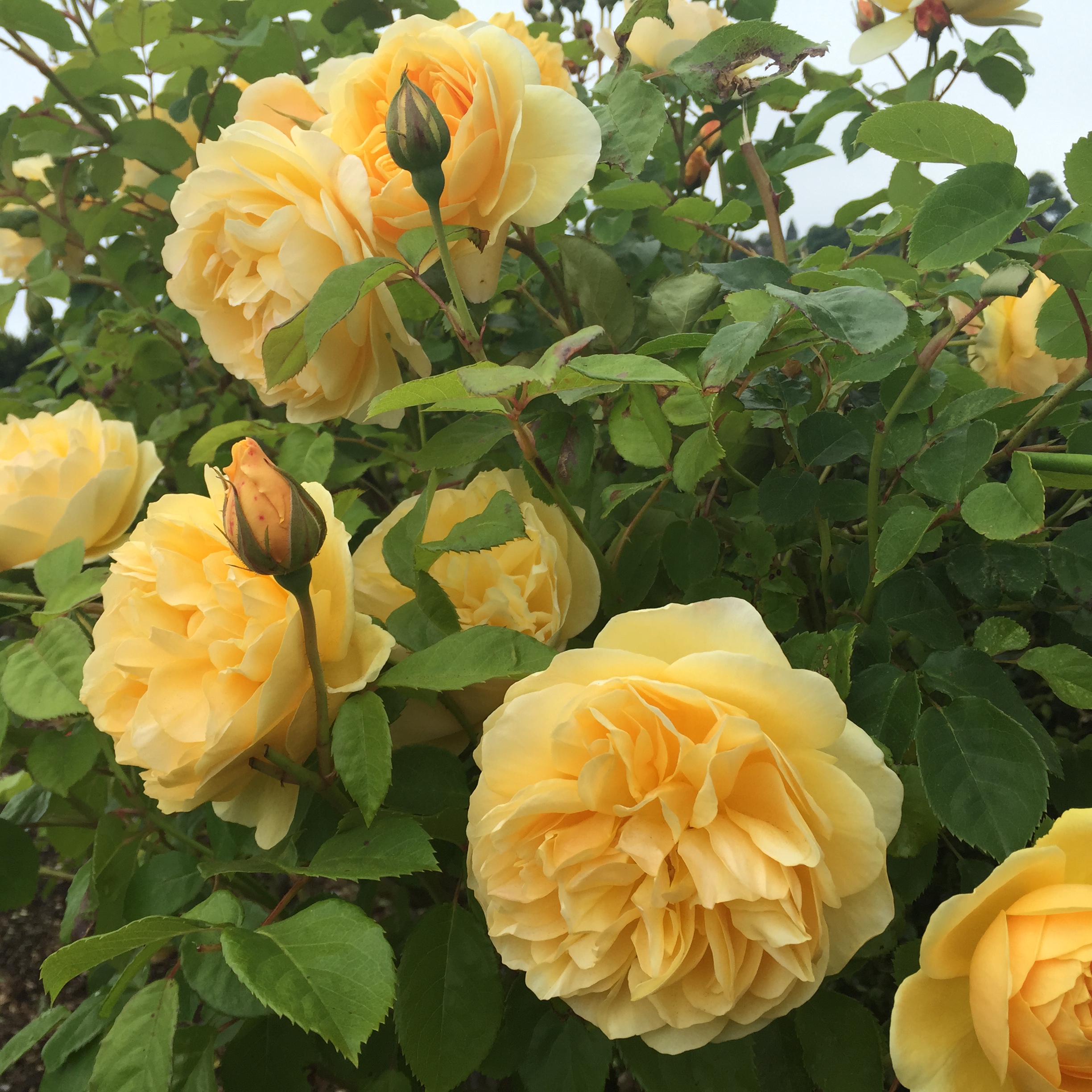
A summer heat wave has hit Portland, Oregon. Here in The City of Roses, we don’t get that many days in the mid-80’s much less a whole week of temperatures in the mid- to upper-90’s. Needless to say, people—and plants—are drooping just a bit.
While it’s true that roses aren’t as fussy as most people think, they do need extra TLC in these hot and dry summer conditions.
Water slowly and deeply.
If your roses are wilting or drooping, they need more water. In hot and dry weather a good rule of thumb is to water every two to four days to a depth of about 10 to 12 inches. Avoid watering in very humid weather, and don’t water the foliage from overhead—this can lead to disease. Instead, spray water toward the bottom of foliage.
Mulch.
To help retain moisture and prevent the growth of weeds, apply a layer (approx. 2 to 4 inches) of mulch around the base of your rose bushes. You can use wood chips, shredded bark or even cocoa bean hulls. Mulch also helps prevent fungi spores from the soil from splashing up and onto the foliage during watering.
Fight disease with compost tea.
Roses are particularly susceptible to fungal diseases like black spot and powdery mildew. Many gardeners swear by the bi-weekly benefits of compost tea to help keep rose bushes healthy and disease-free. Compost tea is a concentrated liquid compost extract that you can make yourself or buy at nurseries and garden centers. Add a high-quality volcanic rock dust like Cascade Minerals Remineralizing Soil Booster to the mixture to boost the number of beneficial microorganisms available to plants. Just be sure to use the tea to spray foliage soon after you make or buy it. Compost tea has a very short shelf life, typically 24-48 hours.
Deadhead regularly.
To enjoy blooms all summer long, deadhead faded flowers by cutting stems back to about a quarter-inch above a 5-leaflet cluster. Stems should be strong enough to support a new rose (about the thickness of a pencil). Make sure you use sharp pruning shears to ensure a clean cut.
More Rose Planting Tips
Last but not least, if despite your best efforts your roses succumb to weather and/or disease, consider starting new in the spring. Just be sure to remove any old soil and mulch that may be harboring diseases. And don’t forget to plant roses with all-natural Cascade Minerals Remineralizing Soil Booster (for spring planting tips, click here and here). Our all-natural volcanic soil booster was used by the City of Portland to replant nearly 5,000 roses in Peninsula Park Rose Garden, Portland’s first public rose garden which was founded in 1913 (read more about the replanting of the garden here).
